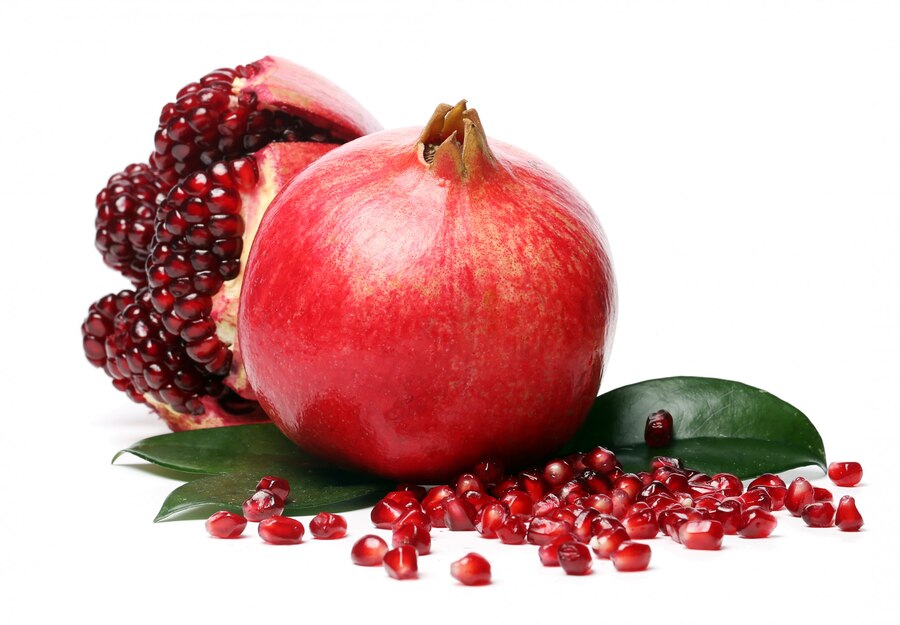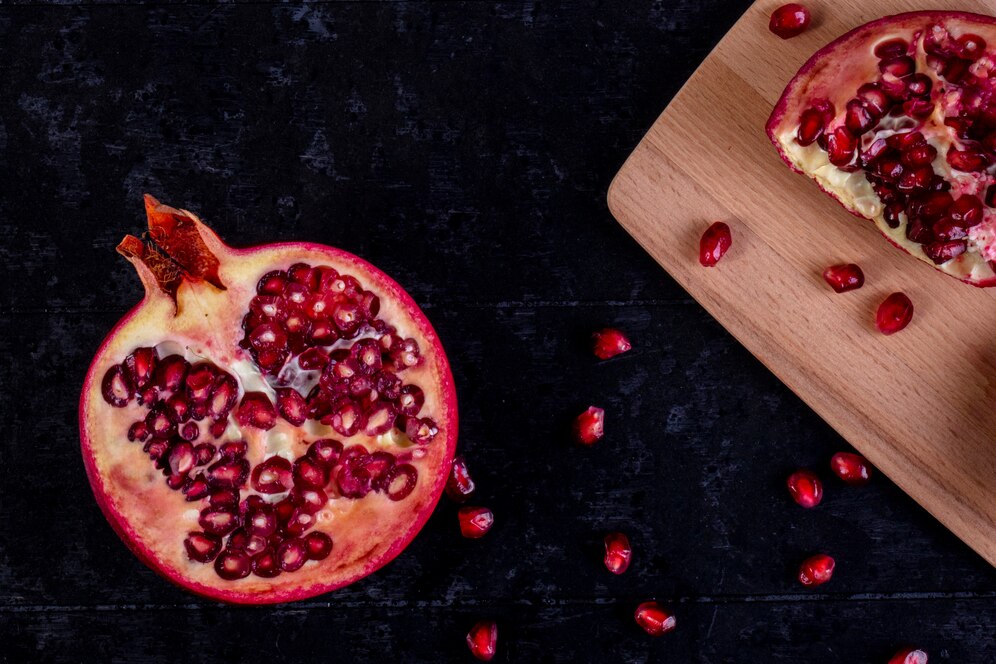Pomegranate is a fruit that comes from the Punica Granatum tree. It is known for its thick, red peel and juicy, red seeds inside. Pomegranate seeds, also called arils, are also edible and have a sweet taste. Pomegranate seeds are considered healthy due to their nutritional content. Pomegranates contain antioxidants, vitamins (such as vitamins C and K), and minerals (such as potassium). The special quality of pomegranate seeds is that it contains fiber, which is beneficial for better digestion.

To eat pomegranate seeds, first cut off the top of the fruit. Try to remove the top layer down, and then gently break it into several pieces. Dip the pieces in a bowl of water and while still inside the water, separate the seeds from the white pulp with your fingers. The seeds will sink to the bottom, but the pulp will remain floating. Filter the seeds and use them in your food.
Pomegranate is a fruit in which many nutritional elements are hidden, let us know in this photo gallery what are the benefits of eating pomegranate.
As we have already seen that grape seeds contain a lot of fiber, and it is very beneficial for digestion, that is why many doctors suggest eating pomegranate in problems like constipation.
Pomegranate is a fruit whose anti-inflammatory properties present in its seeds are very effective in reducing the symptoms of arthritis and reducing pain and swelling of joints.

Grapes contain many compounds like resveratrol and quercetin, which have anti-cancer properties and help in preventing major diseases like tumors. Not only this, the antioxidants found in grapes help in preventing cancer.
The antioxidants present in pomegranate seeds protect the skin from damage caused by UV radiation and environmental changes, giving a healthy and attractive glow to the skin.
Vitamin C is present in abundance in pomegranate seeds which is effective in increasing our immunity. That is why pomegranate helps in fighting infections and diseases.
(PC: Freepik)










